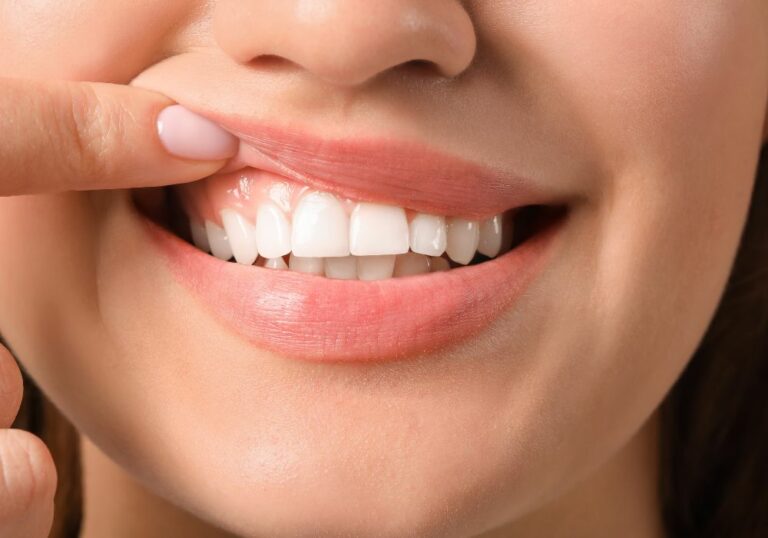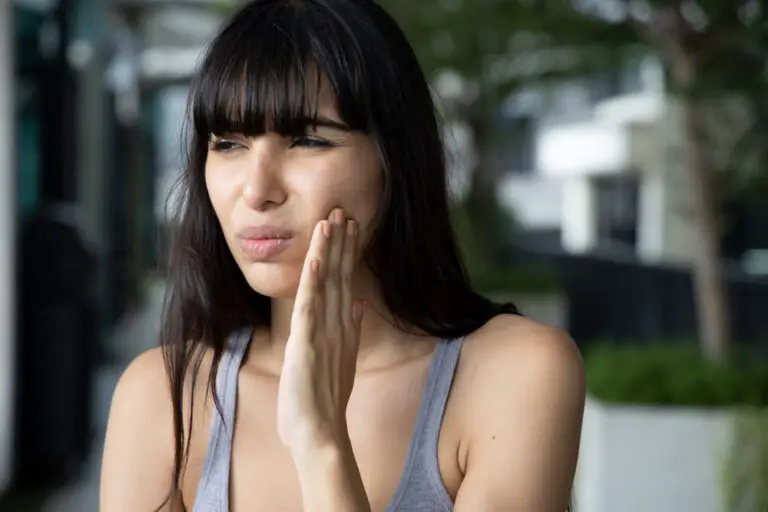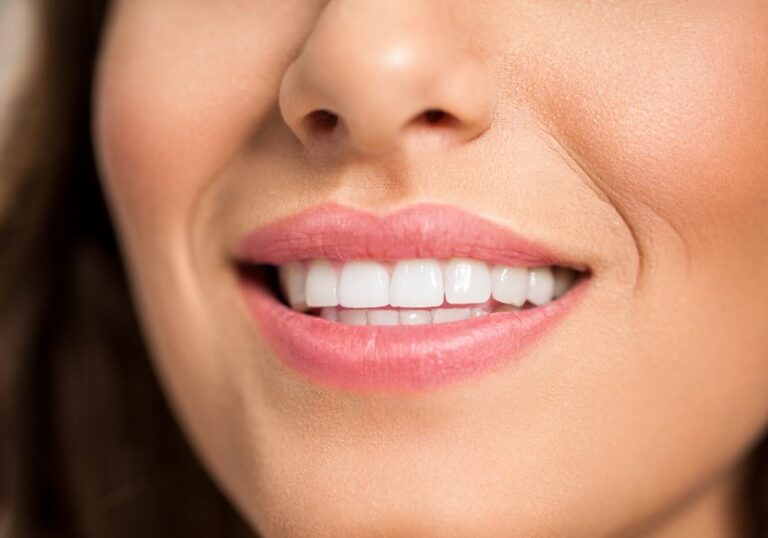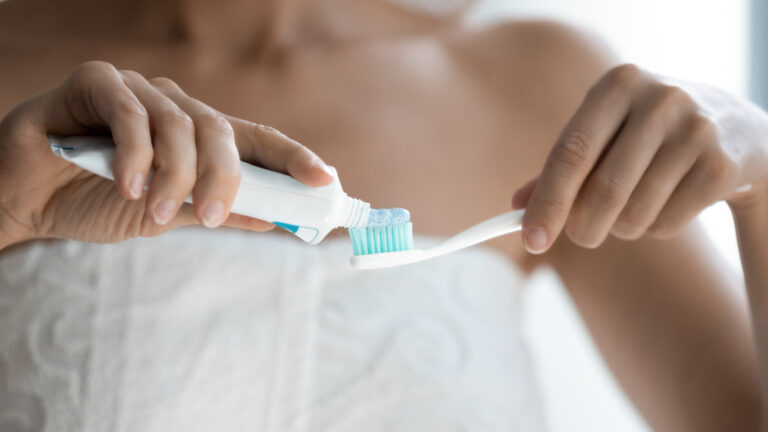Do you wake up with a sore jaw or a headache in the morning? Do you have sensitive teeth or notice that your teeth are wearing down? These could be signs that you are grinding your teeth at night. But can you grind your teeth at night without knowing it? The answer is yes.
Bruxism, the medical term for teeth grinding, can occur during both the day and night. However, sleep bruxism is more common and often goes unnoticed. In fact, many people who grind their teeth at night are unaware that they are doing it until they experience symptoms or are informed by their sleeping partner. It is estimated that up to 20% of adults suffer from sleep bruxism.
Understanding Teeth Grinding
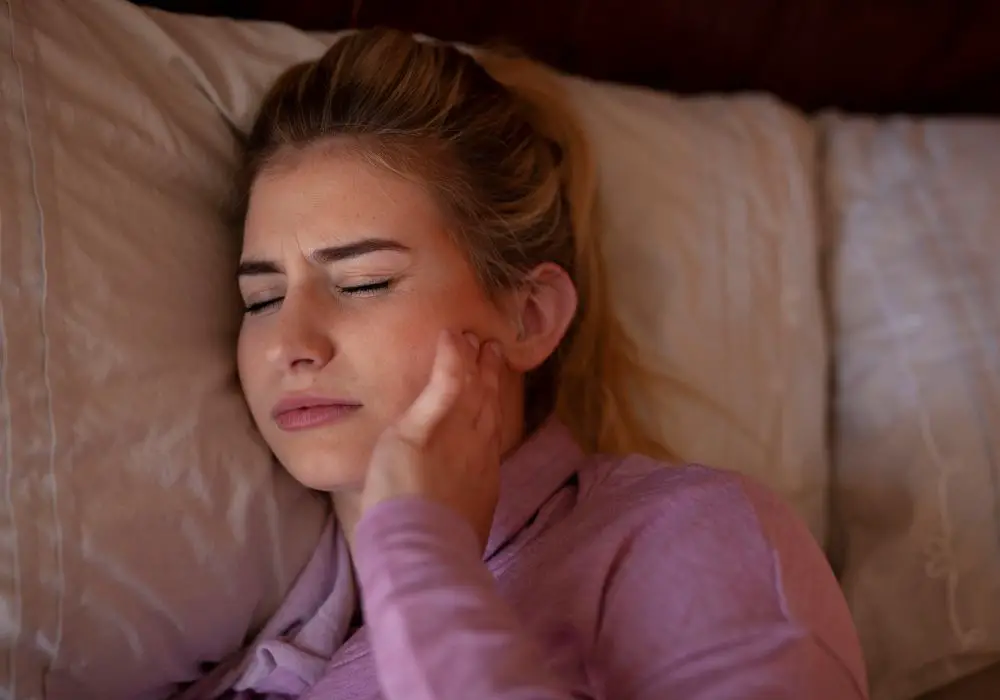
Teeth grinding, also known as bruxism, is a condition where you unconsciously grind or clench your teeth. It can happen during the day, but it often happens at night while you’re asleep. According to Mayo Clinic, bruxism affects up to 15% of adults and can lead to various dental problems if left untreated.
There are two types of bruxism: awake bruxism and sleep bruxism. Awake bruxism is when you clench your teeth during the day, often in response to stress or anxiety. Sleep bruxism, on the other hand, is when you grind or clench your teeth while you’re asleep.
The exact causes of bruxism are not fully understood, but it is believed to be related to stress, anxiety, and other emotional factors. It can also be caused by an abnormal bite, crooked or missing teeth, or sleep disorders such as sleep apnea.
Symptoms of bruxism include:
- Teeth grinding or clenching sounds while you sleep
- Headaches, jaw pain, or earaches
- Sensitive teeth
- Damaged teeth, fillings, or crowns
- Tired or tight jaw muscles
If you suspect that you may be grinding your teeth at night, it’s important to talk to your dentist. They can examine your teeth and jaw for signs of bruxism and recommend treatment options.
Treatment options for bruxism include:
- Mouthguards or splints to protect your teeth from further damage
- Stress management techniques such as meditation or therapy
- Muscle relaxation exercises
- Corrective dental treatments such as braces or oral surgery
In conclusion, teeth grinding can be a serious dental problem if left untreated. If you suspect that you may be grinding your teeth at night, talk to your dentist about treatment options.
Causes of Teeth Grinding
Teeth grinding, also known as bruxism, can occur during the day or night. However, night-time teeth grinding is more common and often goes unnoticed. Here are some of the causes of teeth grinding:
- Stress and Anxiety: High levels of stress and anxiety can cause you to grind your teeth, especially at night. This is because stress and anxiety can lead to tense muscles, including those in the jaw.
- Abnormal Bite: An abnormal bite can cause teeth grinding. This is because an abnormal bite can cause your teeth to not align properly, which can lead to clenching and grinding.
- Crooked or Missing Teeth: Crooked or missing teeth can also cause teeth grinding. This is because your teeth may not be able to come together properly, which can lead to clenching and grinding.
- Sleep Disorders: Sleep disorders such as sleep apnea can cause teeth grinding. This is because sleep apnea can cause you to wake up frequently throughout the night, which can lead to teeth grinding.
- Lifestyle Factors: Certain lifestyle factors such as smoking, alcohol consumption, and caffeine intake can also contribute to teeth grinding.
It is important to identify the cause of your teeth grinding in order to find the appropriate treatment. If you suspect that you are grinding your teeth at night, it is important to talk to your dentist or healthcare provider. They can help you determine the cause of your teeth grinding and recommend appropriate treatment options.
Symptoms of Nighttime Teeth Grinding
If you grind your teeth at night, you may not be aware of it. However, there are some symptoms that you can look out for to determine if you are grinding your teeth while you sleep.
One of the most common symptoms of nighttime teeth grinding is waking up with a headache. This is because the muscles in your jaw have been working all night, causing tension and pain in your head. You may also experience pain in your neck or shoulders.
Another symptom of nighttime teeth grinding is tooth sensitivity. This is because the enamel on your teeth can become worn down from the grinding, exposing the more sensitive dentin underneath. You may notice that your teeth are more sensitive to hot or cold foods and drinks.
If you grind your teeth at night, you may also experience jaw pain or stiffness. This is because the constant grinding can cause inflammation in the temporomandibular joint (TMJ), which connects your jawbone to your skull.
In some cases, nighttime teeth grinding can also lead to damage to your teeth, including fractures and chips. You may notice that your teeth look worn down or that there are small cracks in the enamel.
If you are experiencing any of these symptoms, it is important to speak to your dentist. They can examine your teeth and jaw to determine if you are grinding your teeth at night and recommend treatment options to help alleviate your symptoms.
Effects of Unconscious Teeth Grinding
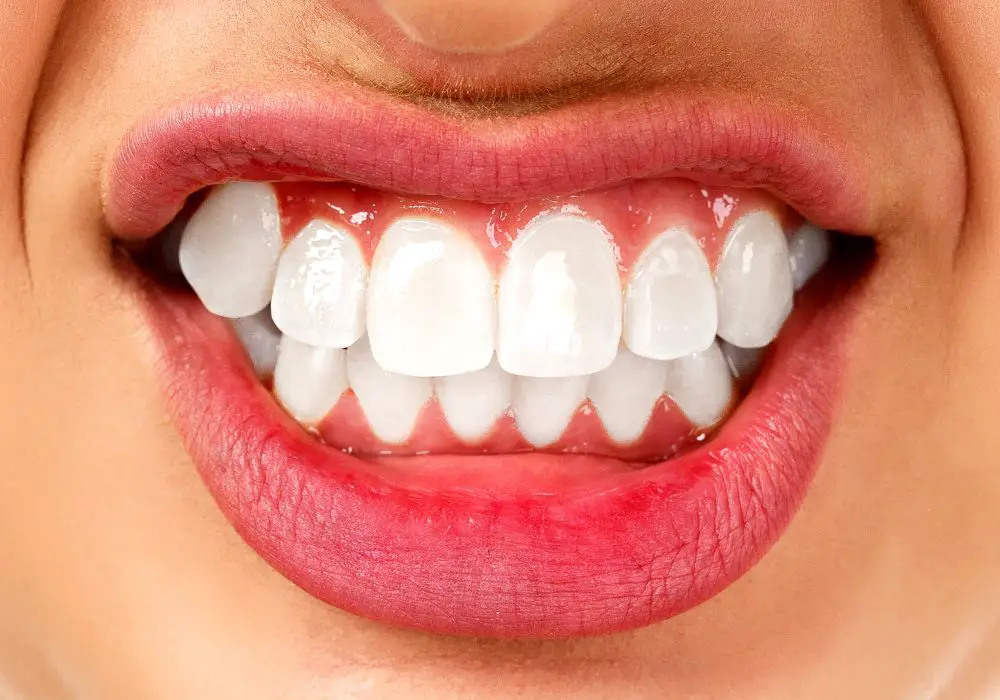
If you grind your teeth unconsciously at night, you may experience various negative effects on your dental health and overall well-being. Here are some of the effects of unconscious teeth grinding:
Dental Problems
Unconscious teeth grinding can cause several dental problems, such as tooth pain, tooth damage, and gum soreness. Over time, grinding your teeth can wear down the enamel, leading to tooth fractures and sensitivity to hot and cold foods. In severe cases, teeth grinding can even cause loosened teeth and temporomandibular joint (TMJ) disorders, which may cause jaw clicking, muscle pain, and chewing difficulties.
Headaches and Jaw Pain
If you grind your teeth at night, you may wake up with headaches, jaw pain, and muscle soreness. Teeth grinding can put pressure on your jaw muscles, causing them to ache and become fatigued. This can also lead to pain in your temples, ears, and neck.
Sleep Disturbances
Teeth grinding can also disrupt your sleep, causing you to wake up frequently during the night. This can lead to daytime fatigue, irritability, and difficulty concentrating. If you have sleep apnea, teeth grinding can exacerbate your symptoms and make it harder to breathe during the night.
Psychological Effects
Teeth grinding can also have psychological effects, such as increased anxiety and stress. The pain and discomfort caused by teeth grinding can make it harder to relax and fall asleep, leading to a vicious cycle of stress and teeth grinding.
In summary, unconscious teeth grinding can have various negative effects on your dental health, sleep, and overall well-being. If you suspect that you grind your teeth at night, it is important to talk to your dentist and explore treatment options to prevent further damage and improve your quality of life.
Diagnosis of Teeth Grinding
If you suspect that you grind your teeth at night, the first step is to visit your dentist. They will examine your teeth for signs of wear and tear and ask you about your symptoms.
Your dentist may also ask you to keep a sleep diary to record any symptoms you experience at night, such as headaches or jaw pain. They may also recommend that you undergo a sleep study to determine if you have sleep apnea or another sleep disorder that could be contributing to your teeth grinding.
In some cases, your dentist may refer you to a specialist, such as a sleep medicine physician or a temporomandibular joint (TMJ) specialist, for further evaluation and treatment.
To diagnose teeth grinding, your dentist may also use the following tools:
- X-rays: to check for damage to the teeth and jawbone
- Bite analysis: to determine how your teeth fit together
- EMG (electromyography) test: to measure the activity of the muscles that control jaw movement
Once you have been diagnosed with teeth grinding, your dentist will work with you to develop a treatment plan that is tailored to your needs. This may include lifestyle changes, such as stress reduction techniques or avoiding caffeine and alcohol, as well as the use of a mouthguard or other dental appliance to protect your teeth and jaw.
Treatment Options
If you grind your teeth at night without knowing it, there are several treatment options available to help alleviate the symptoms and prevent further damage to your teeth. Depending on the severity of your condition, your doctor may suggest one or more of the following treatment options:
Lifestyle Changes
Making simple lifestyle changes can help reduce the severity of teeth grinding and prevent further damage to your teeth. Here are a few lifestyle changes that may help:
- Reduce stress: Stress is a common trigger for teeth grinding. Finding ways to reduce stress, such as practicing relaxation techniques or getting regular exercise, may help alleviate symptoms.
- Avoid caffeine and alcohol: Caffeine and alcohol can worsen teeth grinding symptoms. Avoiding these substances, especially before bed, may help reduce symptoms.
- Practice good sleep hygiene: Getting enough sleep and maintaining a regular sleep schedule may help reduce teeth grinding symptoms.
Medical Interventions
If lifestyle changes alone are not enough to alleviate your symptoms, your doctor may suggest medical interventions. Here are a few medical interventions that may help:
- Mouthguards: Mouthguards are a common treatment option for teeth grinding. They work by cushioning your teeth and preventing them from grinding against each other.
- Medications: In some cases, medications may be prescribed to help alleviate teeth grinding symptoms. These may include muscle relaxants, anti-anxiety medications, or antidepressants.
- Dental procedures: In severe cases, dental procedures such as crowns or bridges may be necessary to repair damage caused by teeth grinding.
It’s important to talk to your doctor if you suspect that you are grinding your teeth at night. They can help determine the best treatment options for your specific needs and help prevent further damage to your teeth.
Prevention Strategies
If you grind your teeth at night, there are several strategies you can use to prevent further damage to your teeth:
- Mouthguards and splints: Mouthguards and splints are designed to cushion your teeth and prevent them from grinding against each other. They can be custom-made by your dentist or purchased over-the-counter.
- Stress reduction: Stress and anxiety can contribute to teeth grinding, so it’s important to find ways to reduce stress in your life. This might include exercise, meditation, or therapy.
- Avoiding caffeine and alcohol: Caffeine and alcohol can both contribute to teeth grinding, so it’s best to avoid them if possible. If you do consume these substances, try to do so in moderation.
- Avoiding chewing gum: Chewing gum can contribute to teeth grinding by overworking the jaw muscles. If you must chew gum, try to do so on the opposite side of your mouth from where you tend to grind your teeth.
- Improving sleep habits: Getting enough sleep and establishing a regular sleep routine can help reduce teeth grinding at night.
- Correcting misaligned teeth: Misaligned teeth can contribute to teeth grinding, so it’s important to see your dentist if you have any issues with your bite.
By following these prevention strategies, you can reduce the likelihood of further damage to your teeth and alleviate the symptoms of teeth grinding.
When to Seek Professional Help
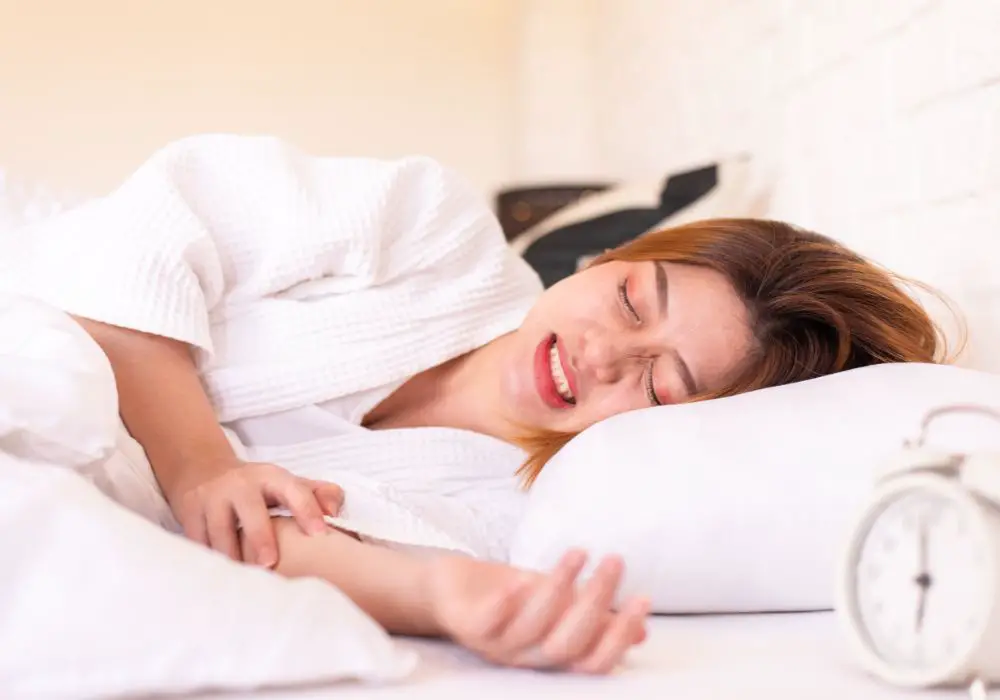
If you suspect that you may be grinding your teeth at night, it is important to seek professional help. Here are some signs that you should see a dentist or doctor:
- You experience pain in your jaw, face, or neck.
- Your teeth are sensitive, loose, or worn down.
- You have headaches, earaches, or neck aches.
- You notice that your teeth are chipped or cracked.
- You have trouble sleeping or feel tired during the day.
- You have a partner who has noticed that you grind your teeth at night.
If you are experiencing any of these symptoms, it is important to see a dentist or doctor. They can help you determine the cause of your teeth grinding and recommend appropriate treatment.
Your dentist may recommend a mouthguard or splint to protect your teeth from further damage. They may also suggest relaxation techniques or stress management strategies to help you reduce your teeth grinding.
In some cases, your dentist may refer you to a sleep specialist to determine if you have a sleep disorder that is causing your teeth grinding. If you have sleep apnea or another sleep disorder, treating the underlying condition may help reduce your teeth grinding.
Remember, if you suspect that you are grinding your teeth at night, it is important to seek professional help. Your dentist or doctor can help you determine the cause of your teeth grinding and recommend appropriate treatment to protect your teeth and improve your quality of life.
Frequently Asked Questions
How can I tell if I’m grinding my teeth at night?
If you wake up with a sore jaw or headache, it could be a sign that you are grinding your teeth at night. You can also ask your partner or a family member if they hear you grinding your teeth while you sleep. Another way to tell is to look for signs of wear and tear on your teeth.
What are the symptoms of teeth grinding in sleep?
The symptoms of teeth grinding in sleep include loud grinding or clenching noises that may wake up your partner, flattened, fractured, chipped, or loose teeth, increased tooth pain or sensitivity, and worn tooth enamel, exposing deeper layers of your tooth.
What are some ways to stop clenching my jaw when sleeping?
There are several things you can do to stop clenching your jaw when sleeping. You can try relaxation techniques like yoga or meditation, avoid caffeine and alcohol before bedtime, use a warm compress on your jaw muscles, or wear a custom-made mouthguard to protect your teeth.
Is teeth grinding in sleep common in children?
Yes, teeth grinding in sleep is common in children. It usually happens when their baby teeth start to come in and when their adult teeth start to come in. Most children outgrow teeth grinding by the time they reach their teenage years.
How can I relieve tooth pain caused by grinding?
To relieve tooth pain caused by grinding, you can try over-the-counter pain relievers like ibuprofen or acetaminophen. You can also apply a warm compress to the affected area or use a toothpaste designed for sensitive teeth.
Can teeth grinding be silent and still cause damage?
Yes, teeth grinding can be silent and still cause damage. Even if you don’t hear any grinding or clenching noises, the pressure and force can still cause wear and tear on your teeth, leading to tooth pain, sensitivity, and other dental problems.

